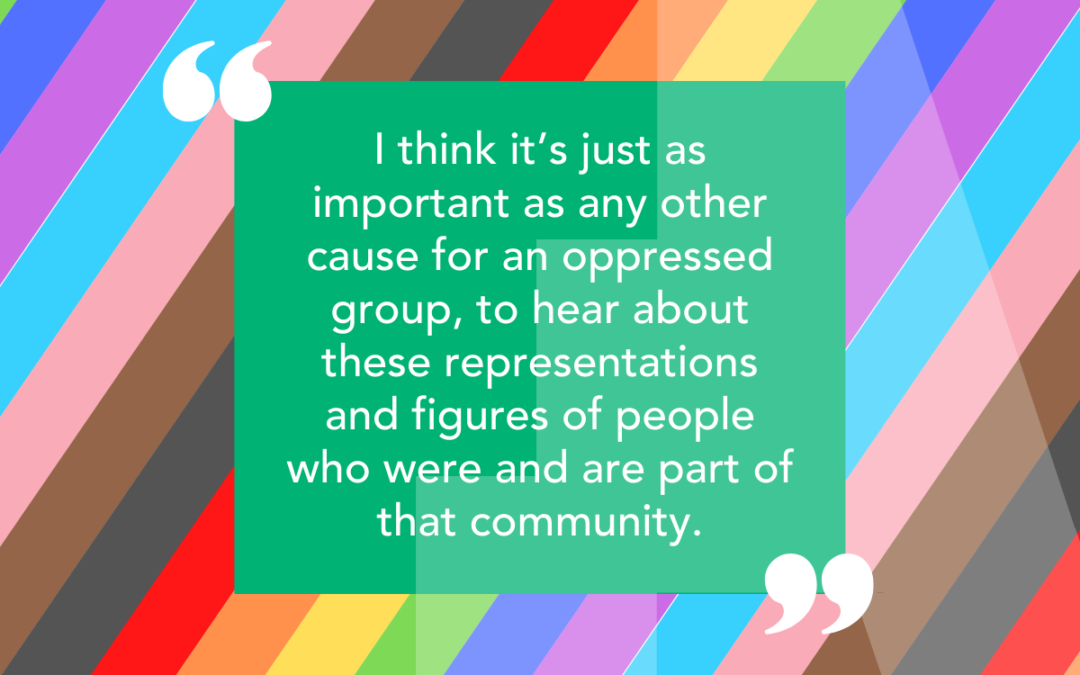The Access Project works with a diverse group of students, volunteers, and colleagues to support disadvantaged young people to get to top universities. This February we are celebrating LGBT+ History Month by highlighting the experiences of our students who identify as LGBTQ+.
“Working with my tutor has improved my personal enjoyment of English as a whole”
Miriam has been on The Access Project programme for two years. Miriam thinks that the extra support in English this year hasn’t just made her feel more confident about writing: “Working with my tutor has improved my personal enjoyment of English as a whole. I enjoy unseen poetry, which is a section of our exams about comparing two short modern poems you haven’t seen before.”
“I read the poem I, being born a woman and distressed by Edna Millay who wrote about having sexual desires but being unable to express them in the 1920s. It made me think of the concept and portrayal of women at that time. I went on to research this further, and found a lot of interesting information about concepts in medicine that supported the idea that women were hysterical if they were overtly sexual.”
“Form a support system at home, with friends or online”
We asked Miriam why she thinks it’s important to celebrate LGBT History Month. “I think it’s just as important as any other cause for an oppressed group, to hear about these representations and figures of people who were and are part of that community.”
“There is more representation of LGBTQ+ people in TV shows and social media, but not in reality. Not in history.”
Miriam feels that it’s important to have more LGBTQ+ representation in real life. “I think a lot of the time I’ve never had a role model that was a public figure. Although there was a person in my family who was LGBTQ+, they were not close, but they came out to my family, and my family’s reaction gave me hope that I would be accepted as well.”
For Miriam, having that support network is essential. “Form a support system at home, with friends or online. Reach out to discuss the hardships. I would say if you’re not out and you do not have a support system, you can wait. Own who you are, but sometimes it doesn’t go well and it might distract you from school.”
“I think it’s okay not to know exactly what career I will go into.”
We asked Miriam about her hopes and dreams for the future. “Right now I hope to get into my choice of university, it’s either Oxford Brookes or Surrey. I want to study Criminology or Sociology. My interest in these subjects came out when I was in A level. Most people I know around me find out what they want to do when they get to A levels.”
“I am particularly interested in child protection, or being a social worker, or detective roles… I think it’s okay not to know exactly what career I will go into. I’ll study, and when the time comes I’ll see what intrigues me.”

